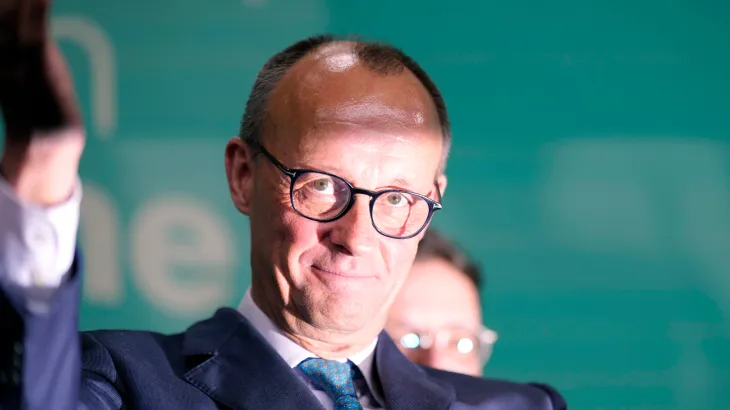In a national election that has left Germany’s political landscape sharply divided, conservative opposition leader Friedrich Merz secured a narrow, yet significant, victory on Sunday. Projections indicate that Merz’s party, while emerging as the frontrunner, fell short of the expected 30% vote share, reflecting a lackluster performance in an already fragmented electoral scene.
Celebrating amid a chorus of cheers, Merz told his supporters, “Let’s celebrate tonight and in the morning we’ll get to work,” acknowledging the heavy responsibilities ahead. Despite the victory, he conceded that forming a coalition government by Easter would be a formidable challenge given the current political climate.
Adding to the dynamic was the far-right Alternative for Germany (AfD), which surged to a record second-place finish with a projected national vote share of 20.8%—its best showing since World War II. The AfD’s support was particularly strong in eastern Germany, where a survey for public broadcaster ZDF indicated a striking 34% backing in the region.
AfD’s chancellor candidate, Alice Weidel, took a victory lap with her supporters, proclaiming, “Germans have voted for change.” Yet, she tempered the celebrations by predicting that Merz’s coalition-building efforts might falter, stating, “We’ll have fresh elections – I don’t think we’ll have to wait another four years.”
Meanwhile, Chancellor Olaf Scholz admitted defeat for his center-left Social Democrats, describing the outcome as “a bitter election result.” The Social Democrats finished in third place with their worst postwar performance in a national parliamentary election, as reported by ARD and ZDF public television.
The election results underscore a period of significant change in German politics. Merz’s victory, combined with the unprecedented gains by the AfD, suggests that traditional party loyalties are shifting and that the electorate is increasingly drawn to more radical alternatives. As coalition talks begin, political observers note that forging a stable government will require navigating these deep divisions.
With a mandate that is both historic and precarious, Germany now faces the task of shaping a government capable of addressing the challenges of a polarized society, while the promise of a new political direction hangs in the balance.




